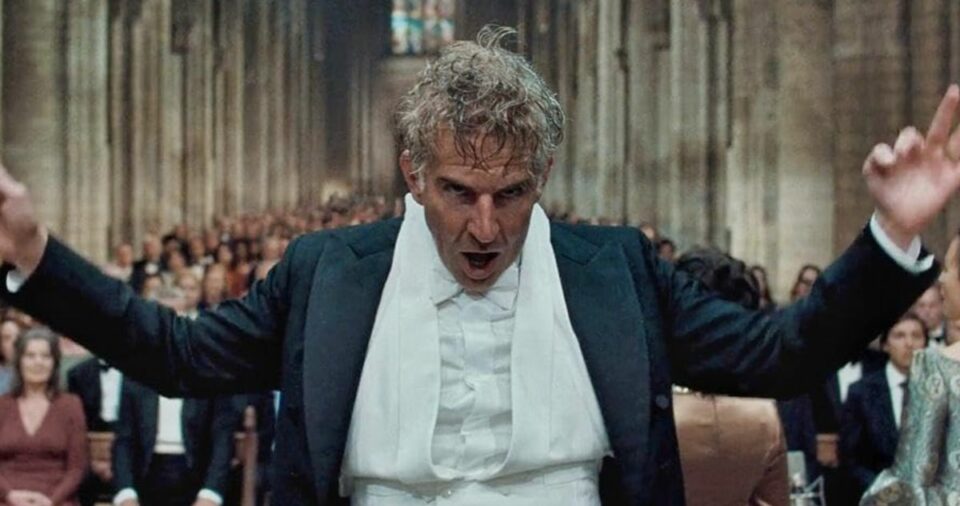This article originally appeared in Gold Rush, a subscriber-only newsletter about the perpetual Hollywood awards race.
Want proof that we did indeed go through a post-2020 vibe shift? A bunch of people on the internet are rooting against a big, starry Oscar movie — for reasons that have nothing to do with the film’s assumed politics.
For years, I have tracked the annual arrival of each season’s Oscar villain, the contender that inspires a panicked “God, no!” among awards enthusiasts. The Academy may pretend that the Oscars is purely about celebrating the very best in the craft, but we know better. This is a competition, and as such, deciding who you’ll root against is almost as much fun as deciding who you’ll root for.
I came of age as a pundit during the Trump presidency, which heightened the stakes of the villain conversation. For right-thinking people of the era, the success of films like La La Land, Three Billboards Outside Ebbing, Missouri, and Green Book was proof not just that awards voters didn’t share their tastes, but of something rotten in the country itself. I don’t want to suggest that we’re in a less polarized moment now or that people have developed healthier attitudes about art. (Last week’s Barbie kerfuffle should disabuse us of that notion.) But I do think it’s a positive development that the 2024 Oscar villain is a throwback to the seasons of yore, when people rooted against a title on purely aesthetic grounds. This year, one unlucky film became the Oscar villain simply because it was boring, basic, and a little pretentious. That’s right — I’m talking about Maestro.
Though I’ve made it my job to follow these things, I confess I did not see the Maestro backlash coming. I caught up with the Leonard Bernstein biopic a week after it played the New York Film Festival in October, and while it wasn’t my favorite of this year’s awards crop, I admired the formal inventiveness, the commitment to period mannerisms, and Bradley Cooper’s evident love of flirting onscreen. It seemed to me like a fairly standard Oscar movie, which is precisely what everybody else hates about it.
The thing Maestro detractors often say is that they have no idea why the film was made, except to win awards. My answer to this is that Maestro is about a straight woman and a gay man who fall for each other, and instead of using each other for clout the way they would today, decide to get married. It’s about how going into a relationship with your eyes fully open is still no defense against getting hurt. To me, that’s as valid a subject for a movie as any. Sounds swell, my friends say, but absolutely none of that has been communicated to the general public. To those who haven’t seen it, Maestro is a movie about how Cooper spent untold amounts of time and money transforming himself into a very important conductor, in a movie about how this conductor was very important. (The private life of Leonard Bernstein is, as Cousin Greg might say, not IP many of them are familiar with.) And thanks to Netflix’s characteristic largesse, the film has also become impossible to ignore. Drive past a billboard, take the subway, browse the internet, and there’s Cooper, baton blazing.
Few of those who have seen the film have rallied to its defense. I’ve heard grumbles from older members of the Hollywood Establishment that Maestro sidelines Bernstein’s art and activism, the very things that made him important. In The New Yorker, Richard Brody said that the film “leaves out the good stuff.” And Cooper’s allusive direction has bugged even those less invested in the tale. As one redditor put it, the film’s attempt to swerve around biopic clichés left it feeling as if it had been assembled “entirely from deleted scenes and outtakes.” Consensus is that the film is technically marvelous but cold, as if Cooper spent such time studying Bernstein’s tics that he lost sight of the man’s soul.
Above all, the thing that seems to be bugging people about Maestro is Cooper himself. Not since Anne Hathaway has an Oscar contender lost so much goodwill simply by campaigning so hard. Now, Cooper has not been alone on the awards trail. Cillian Murphy is not sitting at home in monkish penury. Paul Giamatti has not taken a vow of silence in honor of Thespis. But Cooper has accidentally violated one of the cardinal rules of campaigning: Show you want it, but don’t be desperate. Thus even standard celebrity behavior has been filtered through an unflattering lens. Fans side-eyed his extremely public romance with Gigi Hadid, saw shade toward Murphy in his Variety “Actors on Actors” interview, and passed around blind items hinting at diva behavior behind the scenes. Through strange awards-season alchemy, the combination of Maestro and Cooper’s star persona has made the public recoil from both.
For while Maestro has been dinged for not revealing much about Bernstein, I suspect in its naked stretch for greatness it is a little too revealing about Cooper. At the risk of psychoanalyzing a stranger, it’s worth digging into his teacher’s-pet intensity, the quality many observers find so off-putting.
Like Taylor Swift, another try-hard frequently seen at NFL games this season, Cooper hails from the upper-middle-class suburbs of Philadelphia — a world I can speak to, because it’s the world I come from too. (Both of my siblings attended the same private high school as Cooper.) This is an environment where the dream of meritocracy still holds sway, where a smart kid from a well-off family could believe that if he studied hard enough his dreams were indeed within his grasp. Cooper was exposed to the work of Bernstein as a child; as a young adult he matriculated at Georgetown, rowed crew, studied abroad in France. Mare of Easttown this was not.
Yet although he had high-culture ambitions, even studying at the famed Actors Studio, Cooper’s early-Hollywood forays came at the other end of the industry. His first regular gig was playing a beta on Alias. His first big movie role was as a douchebag in Wedding Crashers. The film that made him a star was The Hangover. By the time Cooper was able to open a movie, his A-list peers — guys like Leonardo DiCaprio, Christian Bale, and Joaquin Phoenix — had been famous for over a decade. By the time The Hangover: Part II hit theaters, that trio had racked up six Oscar nominations between them. Is it any wonder that when Cooper was finally granted access to the world of prestige cinema he would be desperate to prove he belonged?
The New York Times’ Kyle Buchanan noted that, on both of his big Oscar plays, Cooper has run a director campaign, not an actor campaign. Rather than trying to dazzle with charisma in the manner of Giamatti or Colman Domingo, his narrative highlights his diligent preparation, his intense focus. This has earned him the approval of elders like Martin Scorsese and Steven Spielberg, though, so far, not the directors’ branch. I heard rumors about Cooper being a bit of a pill on the Star Is Born campaign, and if he goes home empty-handed yet again, we may hear similar stories this year.
The irony here is that, for all Cooper’s strenuous efforts, Maestro has managed to become the season’s official villain without ever being a legitimate threat. The film hasn’t won many precursors, and though the Academy nominated it in seven categories, including Best Picture, it’s considered a long shot in most of them. (The one exception is Makeup & Hairstyling, where makeup maestro Kazu Hiro is favored to win his third trophy.) What makes this even funnier is that the film that is dominating all comers this season is Oppenheimer — another warts-and-all biopic of a Great Man from the 20th century, which also features a jumbled timeline and black-and-white cinematography, and whose director is likewise often accused of taking himself too seriously. By all rights, Oppenheimer should have become the season’s biggest villain. Why didn’t it?
First and foremost is Barbenheimer. Though I’ve heard whispers that Team Oppenheimer were not the biggest fans of the meme, which they felt trivialized the tragedy of Hiroshima and Nagasaki, there’s no doubt the summer phenomenon inoculated Christopher Nolan’s film from an Oscar-villain backlash. It helped make Oppenheimer a hit, giving it the feel of a winner from day one. By treating the films as a linked pair, the meme also undercut the budding gender essentialism around them; just as Barbie became for the boys, so too did Oppenheimer become for the girls, gays, and theys. And crucially, the craze added an element of fun around what is, let’s face it, a fairly gray and dour film. The internet could not pretend that Oppenheimer was being shoved down their necks, because they’d already claimed it as their own.
This all could change if Oppenheimer keeps winning absolutely everything. (In the wake of Barbie’s snubs, I’m starting to notice uncharitable readings of Nolan’s quotes, an important leading indicator.) Of course, there’s no reason either Oppenheimer or Maestro had to wind up this year’s Oscar villain. But the fact that the latter did and the former did not tells us something: Intellectual pretension is acceptable in our awards vehicles; emotional pretension far less so.
Related
- What Is a Bradley Cooper Film?
- How Mad Should I Be About Barbie’s Oscar Nominations?
- Can Anyone Stop Oppenheimer at the Oscars?
Nate Jones , 2024-02-03 13:00:39
Source link


